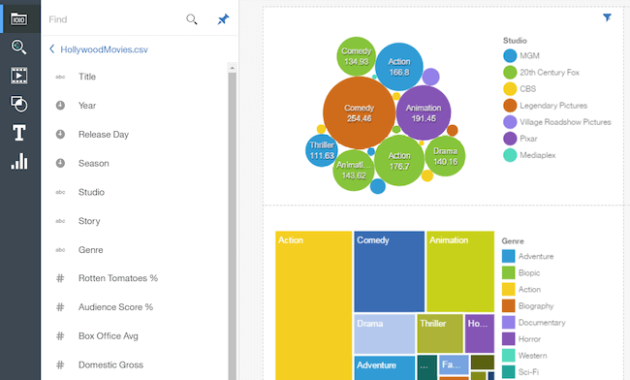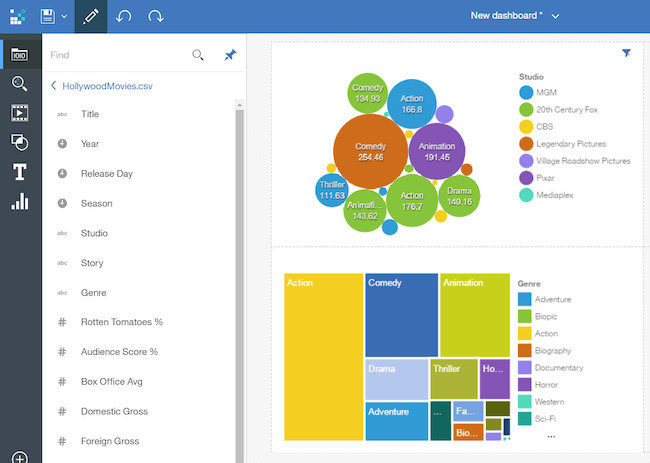
Unlocking the Power: Business Intelligence Tools That Generate Insights
In today’s data-driven world, businesses are drowning in information. The challenge isn’t just collecting data; it’s extracting meaningful insights that drive strategic decisions. This is where Business Intelligence (BI) tools that generate insights step in, transforming raw data into actionable intelligence. They provide the necessary framework for organizations to understand their performance, identify trends, and make informed choices. This article explores the landscape of these powerful tools, examining their capabilities, benefits, and how they can revolutionize your business.
The Evolution of Business Intelligence
The concept of business intelligence has evolved significantly. From rudimentary reporting systems, it has transformed into sophisticated platforms. These platforms offer advanced analytics, data visualization, and predictive modeling. Early BI efforts focused on basic reporting. They provided historical perspectives. Today, the focus is on real-time data analysis. It allows for proactive decision-making.
Key Capabilities of BI Tools
Business Intelligence tools that generate insights boast a range of capabilities. These capabilities help businesses gain a competitive edge. Some of the most important features include:
- Data Integration: The ability to connect to various data sources. These sources include databases, spreadsheets, and cloud services.
- Data Warehousing: The creation of a centralized repository for storing and managing data.
- Data Analysis: The use of statistical methods and algorithms to analyze data.
- Data Visualization: Creating charts, graphs, and dashboards to present data in an easy-to-understand format.
- Reporting: Generating regular reports. These reports summarize key performance indicators (KPIs).
- Predictive Analytics: Using historical data to predict future trends and outcomes.
- Data Mining: Discovering patterns and correlations within large datasets.
Benefits of Implementing Business Intelligence
Implementing Business Intelligence tools that generate insights offers numerous benefits. These benefits can significantly impact business performance. The advantages include:
- Improved Decision-Making: Data-driven insights enable more informed and accurate decisions.
- Increased Efficiency: Automation of reporting and analysis tasks saves time and resources.
- Enhanced Productivity: Employees can focus on strategic initiatives rather than data gathering.
- Cost Reduction: Identifying inefficiencies and optimizing processes can lead to cost savings.
- Competitive Advantage: Understanding market trends and customer behavior helps businesses stay ahead.
- Better Customer Experience: Personalizing products and services based on customer insights.
Top Business Intelligence Tools in the Market
Several Business Intelligence tools that generate insights are available. Each offers a unique set of features and capabilities. Some of the leading tools include:
Tableau
Tableau is a widely-used data visualization tool. It is known for its user-friendly interface and powerful analytical capabilities. It allows users to create interactive dashboards and reports quickly. It is suitable for businesses of all sizes.
Microsoft Power BI
Microsoft Power BI is a comprehensive BI platform. It integrates seamlessly with other Microsoft products. It offers a wide range of features, including data modeling, data visualization, and advanced analytics. It is a cost-effective solution for many organizations.
Qlik Sense
Qlik Sense is a self-service BI platform. It uses an associative data model. This allows users to explore data from multiple angles. It provides robust data discovery and analysis capabilities.
Looker
Looker is a data analytics platform. It is designed for data-driven teams. It offers a centralized data modeling layer. It provides consistent and reliable data across the organization. It is now part of Google Cloud.
Sisense
Sisense is a BI platform. It is built for complex data. It allows for easy data integration. It offers in-database analytics. It provides powerful data visualization.
Choosing the Right BI Tool
Selecting the right Business Intelligence tools that generate insights is critical. It depends on various factors. These include the size of your business, your budget, and your specific needs. Consider the following:
- Ease of Use: The tool should be user-friendly. It should have an intuitive interface.
- Data Integration Capabilities: Ensure the tool can connect to your data sources.
- Scalability: The tool should be able to handle your growing data volume.
- Reporting and Visualization Features: It should offer the features you need.
- Cost: Consider the total cost of ownership, including licensing and implementation.
- Support and Training: Look for a tool with good support and training resources.
Implementing BI Tools: Best Practices
Successful implementation of Business Intelligence tools that generate insights requires careful planning. It also requires execution. Follow these best practices:
- Define Your Goals: Determine what you want to achieve with BI.
- Assess Your Data: Understand the quality and structure of your data.
- Choose the Right Tool: Select the tool that best fits your needs.
- Develop a Data Strategy: Plan how you will collect, store, and manage data.
- Provide Training: Train your employees on how to use the tool.
- Monitor and Evaluate: Track the performance of your BI initiatives.
The Future of Business Intelligence
The future of Business Intelligence tools that generate insights is bright. Several trends are shaping the evolution of the industry:
- Artificial Intelligence (AI) and Machine Learning (ML): AI and ML are being integrated. They automate data analysis and provide deeper insights.
- Cloud-Based BI: Cloud-based solutions are becoming increasingly popular. They offer scalability and flexibility.
- Self-Service BI: Empowering business users to analyze data themselves. It reduces dependence on IT departments.
- Data Democratization: Making data accessible to everyone in the organization. It fosters a data-driven culture.
- Embedded Analytics: Integrating BI into business applications. It provides insights within the workflow.
Case Studies: Real-World Examples
Several companies have successfully used Business Intelligence tools that generate insights. They have achieved significant results. Here are a few examples:
- Retail: A retail chain used BI to analyze sales data. It identified underperforming products and optimized inventory.
- Healthcare: A hospital used BI to analyze patient data. It improved patient outcomes and reduced costs.
- Manufacturing: A manufacturer used BI to monitor production processes. It identified bottlenecks and improved efficiency.
- Finance: A financial institution used BI to analyze customer behavior. It improved fraud detection and personalized services.
Conclusion: The Power of Data-Driven Insights
Business Intelligence tools that generate insights are essential for success. They enable businesses to make informed decisions. They also drive growth. By leveraging the power of data, organizations can gain a competitive edge. They can also navigate the complexities of today’s business landscape. Investing in the right BI tools can transform your business.
[See also: The Role of Data Analytics in Business Strategy]
[See also: How to Choose the Best Data Visualization Tools]
[See also: The Impact of AI on Business Intelligence]
Embrace the potential of Business Intelligence tools that generate insights. Start your journey toward data-driven decision-making today. Your business will be better for it. You will unlock new opportunities for growth and innovation.

